|
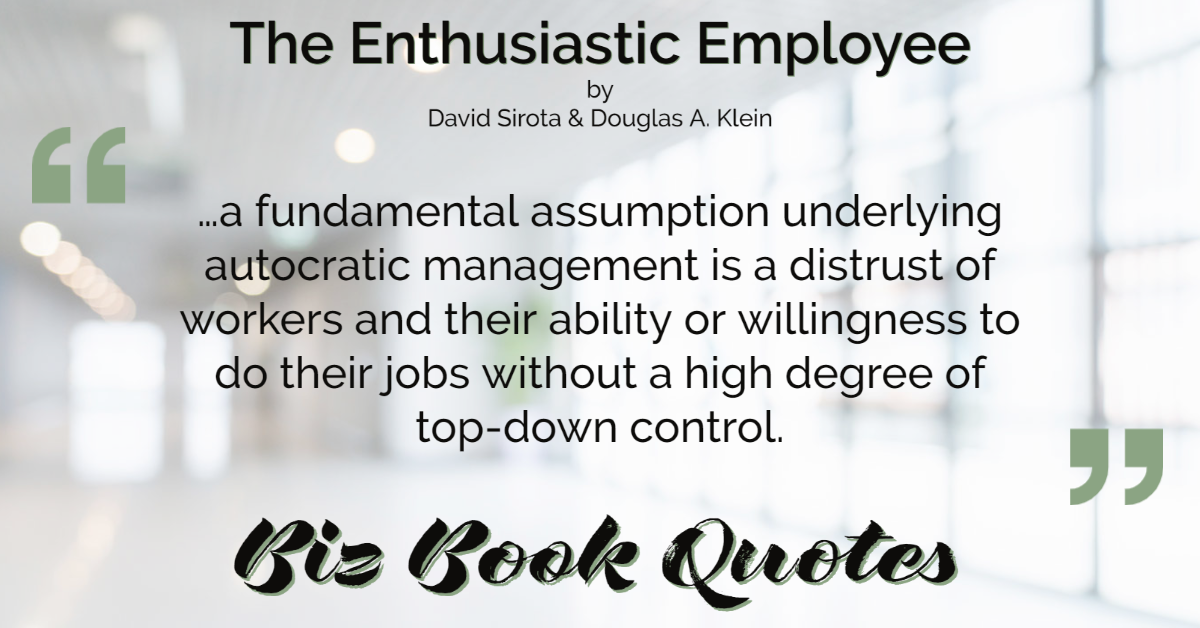
|
The Enthusiastic Employee:
…a fundamental assumption underlying autocratic management is a distrust of workers and their ability or willingness to do their jobs without a high degree of top-down control.
|
265 |
|
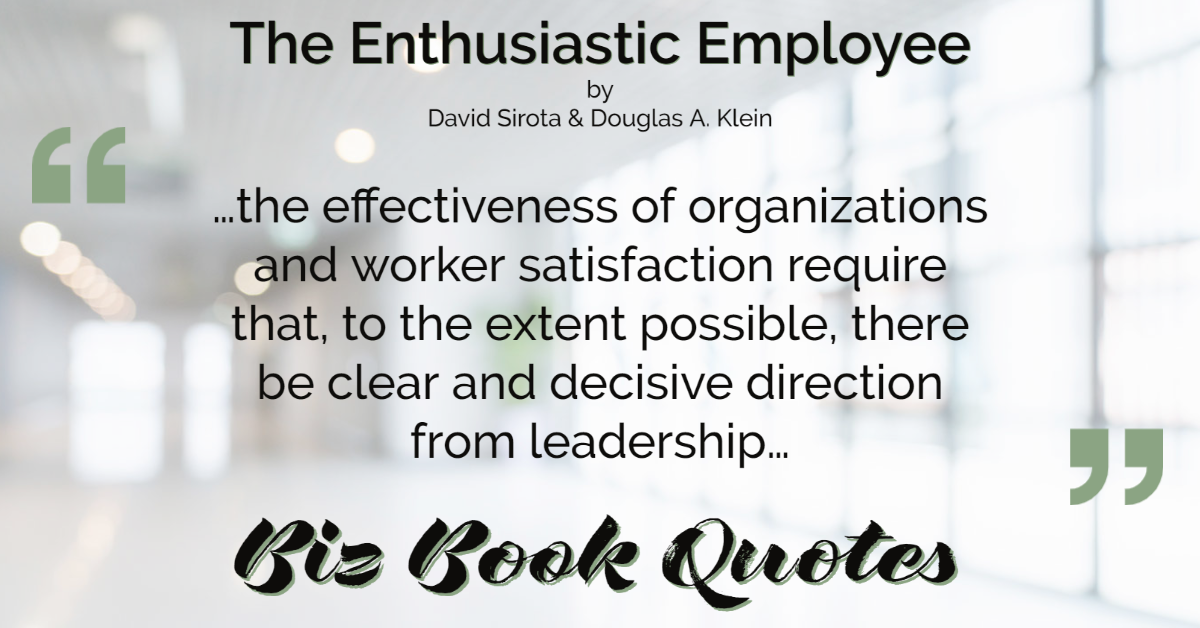
|
The Enthusiastic Employee:
…the effectiveness of organizations and worker satisfaction require that, to the extent possible, there be clear and decisive direction from leadership…
|
266 |
|
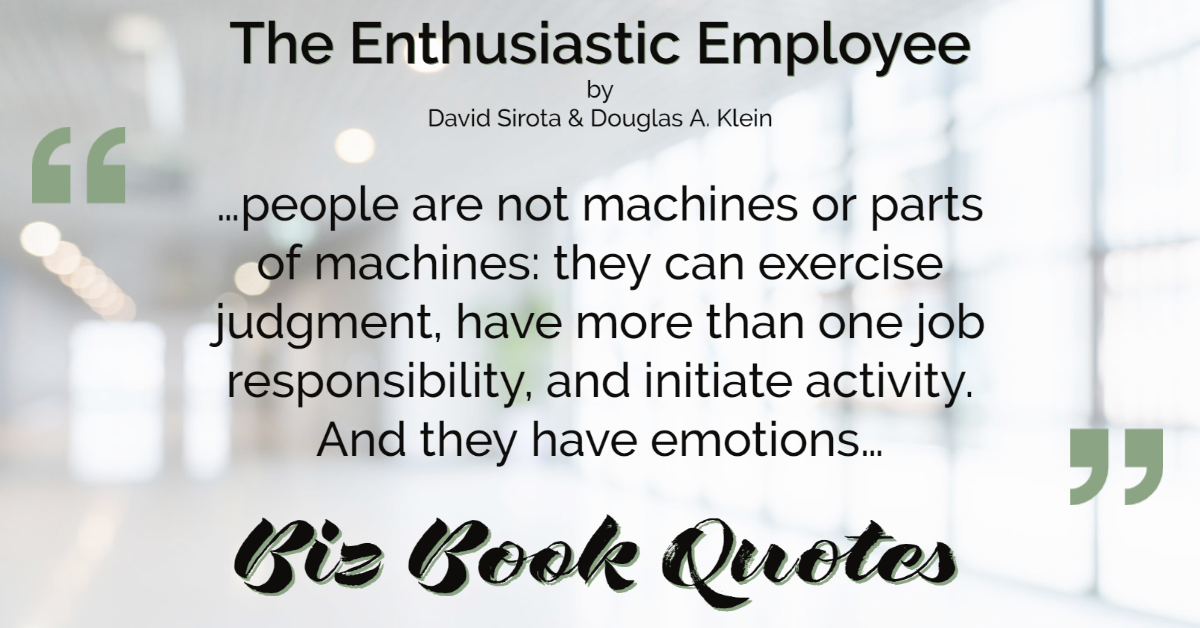
|
The Enthusiastic Employee:
…people are not machines or parts of machines: they can exercise judgment, have more than one job responsibility, and initiate activity. And they have emotions…
|
268 |
|
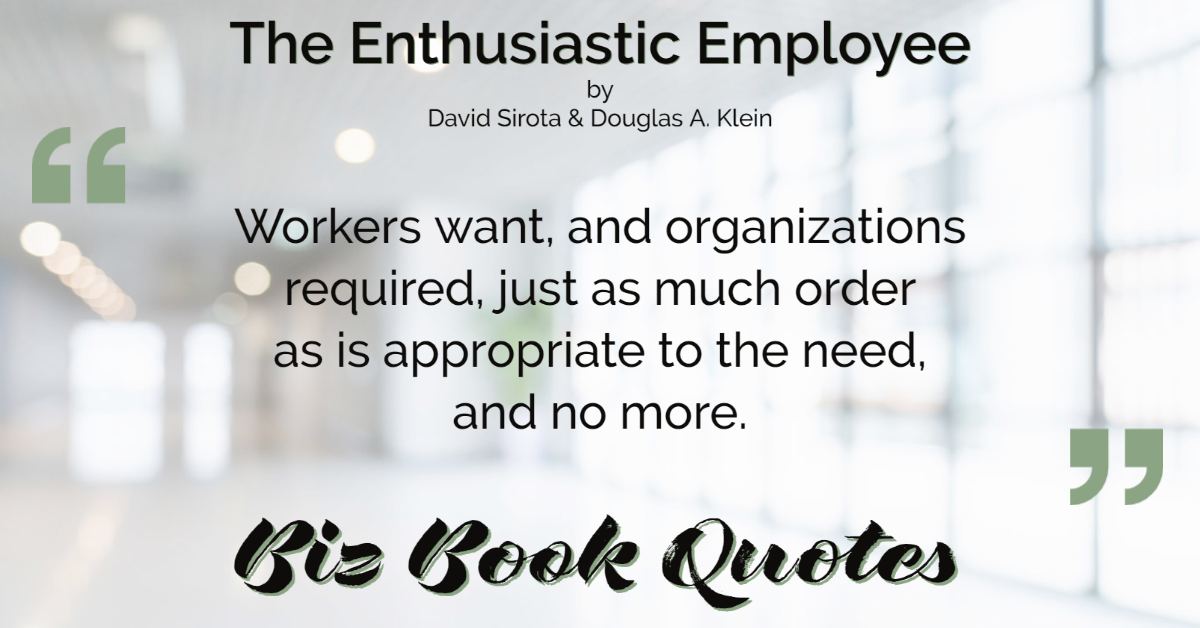
|
The Enthusiastic Employee:
Workers want, and organizations required, just as much order as is appropriate to the need, and no more.
|
268 |
|

|
The Enthusiastic Employee:
Participative management is an active style [of management] that stimulates involvement, not a passive style that forfeits leadership.
|
269 |
|

|
The Enthusiastic Employee:
A great deal of research evidence demonstrates the superiority of participative management for performance.
|
269 |
|

|
The Enthusiastic Employee:
…no matter how routine a job might appear, there is almost always room for worker judgment.
|
272 |
|
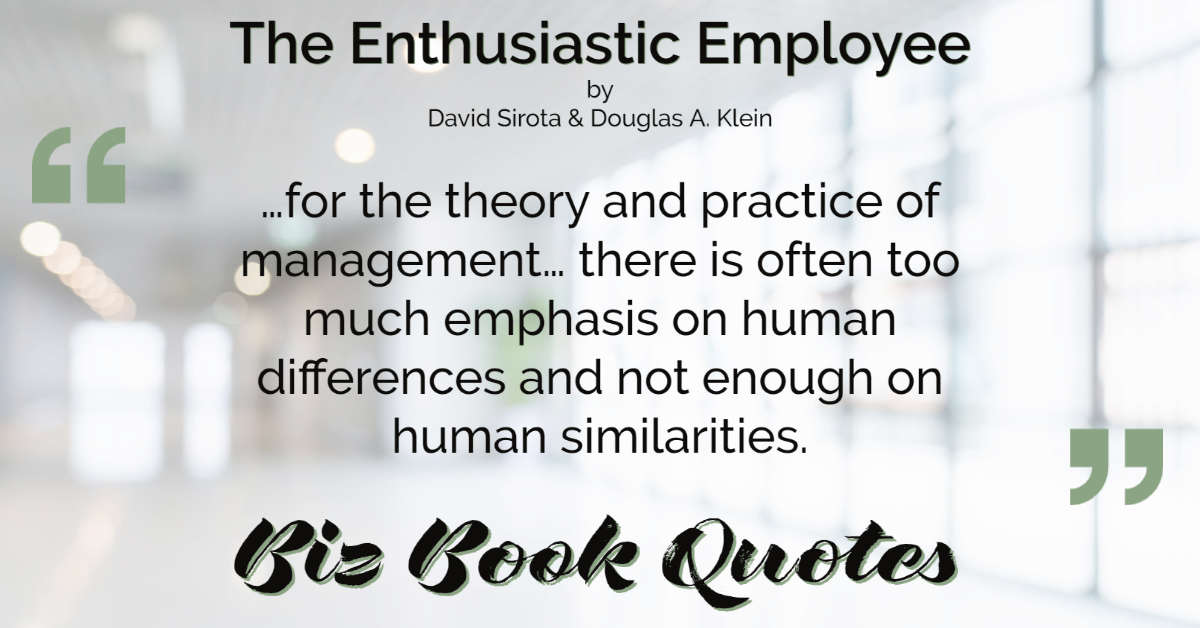
|
The Enthusiastic Employee:
…for the theory and practice of management… there is often too much emphasis on human differences and not enough on human similarities.
|
273 |
|

|
The Enthusiastic Employee:
Many case studies reinforce the quantitative research findings: companies with records of outstanding long-term performance have extraordinarily flat structures.
|
276 |
|
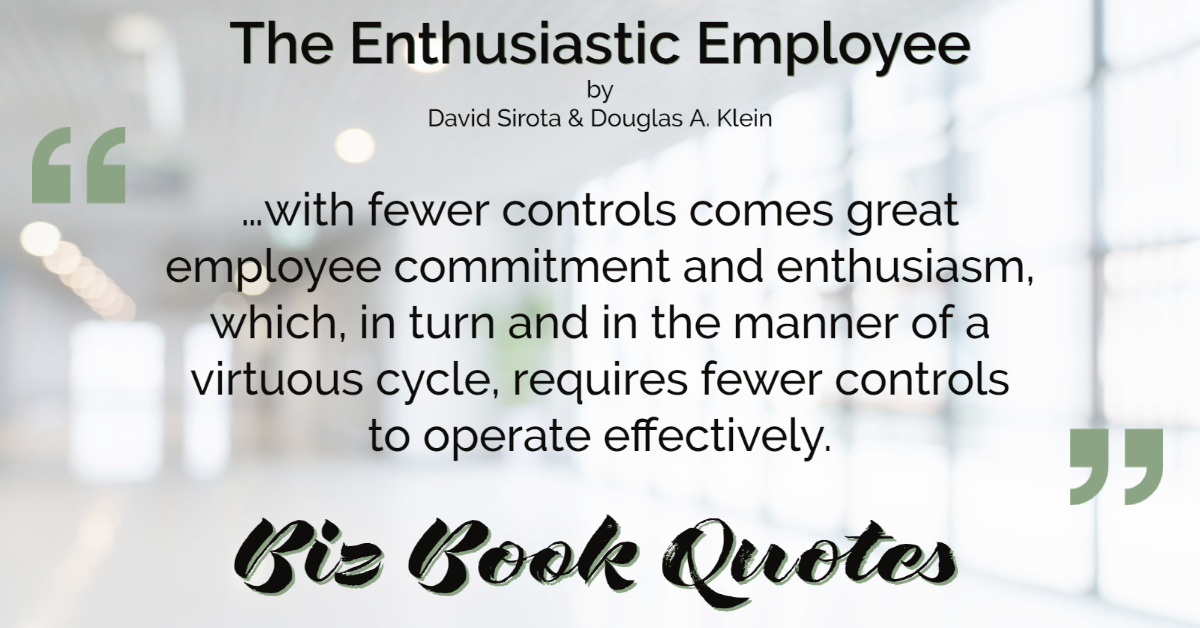
|
The Enthusiastic Employee:
…with fewer controls comes great employee commitment and enthusiasm, which, in turn and in the manner of a virtuous cycle, requires fewer controls to operate effectively.
|
277 |











